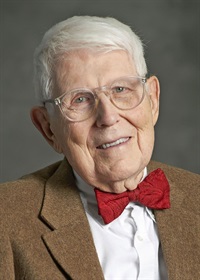EP00 Invited Address 6a - Cognitive Approaches to Psychosis - Aaron T. Beck, MD
- Average Rating:
- Not yet rated
- Topic Areas:
- Invited Addresses | Cognitive Behavior Therapy (CBT) | Schizophrenia
- Categories:
- Evolution of Psychotherapy | Evolution of Psychotherapy 2000
- Faculty:
- Aaron Beck, MD | Miriam Polster
- Duration:
- 1 Hour 26 Minutes
- Format:
- Audio Only
- Original Program Date:
- May 26, 2000
- License:
- Never Expires.
Description
Description:
There have been some surprising developments in cognitive approaches to schizophrenia in recent years. Dr. Beck will describe the clinical trials, some of the therapeutic strategies used to modify, if not eliminate, delusions and hallucinations, and a cognitive model for understanding paranoid psychosis. This understanding will enable therapists to add substantially to the improvement provided by medication.
Educational Objectives:
- To list three techniques for resolving auditory hallucinations.
- To list three strategies for modifying delusions.
*Sessions may be edited for content and to preserve confidentiality*
Credits
Faculty

Aaron Beck, MD Related Seminars and Products
Dr. Aaron T. Beck, M.D. is University Professor of Psychiatry (Emeritus) in the Department of Psychiatry, Perelman School of Medicine at the University of Pennsylvania and director of the Aaron T. Beck Psychopathology Research Center. Based on his research on the psychological processes involved in depression and other disorders, he developed and tested Cognitive Therapy (also known as Cognitive Behavior Therapy), the most widely used form of psychotherapy in the world. He has personally trained large numbers of professionals in this specialized approach and helped to form centers for Cognitive Therapy throughout the world, devoted to both research and serving countless numbers of patients. Starting in 2007, he has directed the Beck Initiative partnership in collaboration with Arthur Evans, former Commissioner of Mental Health of Philadelphia, serving the Medicaid patients in the city. He and his group have been training providers, offering services to the most disadvantaged individuals in the city and state: severely mentally ill individuals confined to hospitals and jails, and also the homeless.
For several decades, Beck conducted research on the psychological and social factors involved in schizophrenia and developed a humanistic approach involved in activating the individual’s latent goals, motivations, and capacities, and has helped to restore large numbers to meaningful lives. His innovative approach in Philadelphia and Pennsylvania has now been extended to other states such as Georgia, Massachusetts, New Jersey, and Utah. In collaboration with the National Association of State Commissioners of Mental Health, he and his Center have started to disseminate his approach throughout the country. In addition, he and his team are working with Gary Gottlieb, Chief Executive Officer of Partners in Health to adapt cognitive therapy to the needs of individuals in 27 developing countries.
Beck has described his work extensively in 637 publications, including 24 books. He has been named by Medscape as one of the 50 Most Influential Physicians in History: 20th on the list and 1st among the living. He has received the 2006 Albert Lasker Award for Clinical Medical Research, which “transformed the understanding and treatment” of mentally ill individuals, the 2006 National Academy of Medicine: Lienhard Award for the advancement of health services, the 2013 Kennedy Community Health Award, and the National Alliance on Mental Illness Lifetime Achievement Award (June, 2017).

Miriam Polster Related Seminars and Products
Miriam Polster, Ph.D, is co-director of the Gestalt Training Center in San Diego, and Assistant Clinical Professor at the Department of Psychiatry, School of Medicine, University of California, San Diego. Along with her husband, Erving Polster, she is co-author of a book on Gestalt therapy. She received her Ph.D. in Clinical Psychology from Case Western Reserve University in 1967.


